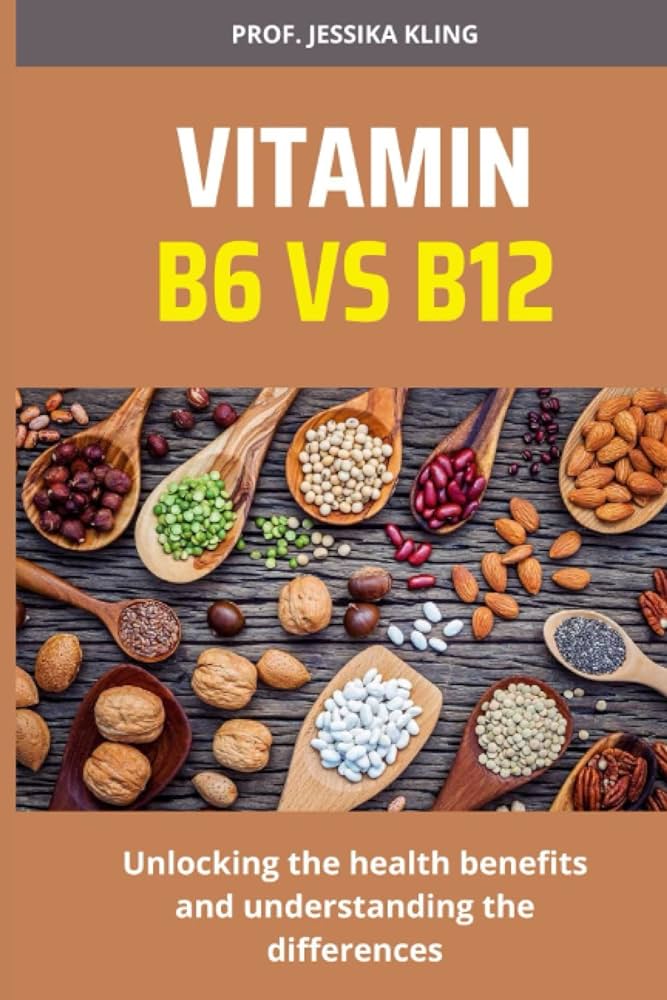The Benefits of B6 and B12: Unlocking the Power of Essential Vitamins
Welcome to our comprehensive guide on the benefits of B6 and B12 vitamins. In this article, we will explore the numerous advantages these essential vitamins offer to our overall health and well-being. B6 and B12 are vital for various bodily functions, and understanding their benefits can empower you to make informed choices about your nutrition and lifestyle.
Understanding B6 and B12 Vitamins
B6 and B12 vitamins are part of the B-complex vitamin group, which consists of eight water-soluble vitamins. These vitamins play a crucial role in maintaining our body’s metabolism, supporting energy production, and promoting the proper functioning of our nervous system.
The Benefits of B6
Vitamin B6, also known as pyridoxine, is involved in over 100 enzymatic reactions in our body. Here are some of the key benefits it provides:
Supports Brain Function: B6 is essential for the production of neurotransmitters such as serotonin, dopamine, and gamma-aminobutyric acid (GABA). These neurotransmitters regulate mood, memory, and cognitive function.
Boosts Immune System: B6 plays a vital role in strengthening our immune system by supporting the production of antibodies and immune cells.
Regulates Hormonal Balance: This vitamin helps regulate hormone levels, including estrogen and progesterone, contributing to a healthy menstrual cycle and overall hormonal balance.
Supports Heart Health: B6 helps in reducing levels of homocysteine, an amino acid associated with an increased risk of heart disease when elevated.
The Benefits of B12
Vitamin B12, also known as cobalamin, is essential for various bodily functions. Here are some of the key benefits it provides:
Enhances Energy Levels: B12 plays a crucial role in converting food into energy, providing a natural boost to combat fatigue and maintain vitality.
Supports Nervous System: This vitamin is essential for the production of myelin, a protective covering around nerves. It helps maintain the health of our nervous system and supports optimal brain function.
Improves Mood and Mental Health: B12 is involved in the synthesis of neurotransmitters such as serotonin and dopamine, which play a vital role in regulating mood and preventing conditions like depression and anxiety.
Aids in Red Blood Cell Formation: B12 is necessary for the production of red blood cells, which carry oxygen throughout the body. Sufficient B12 levels help prevent anemia and promote overall cardiovascular health.
Ensuring Adequate B6 and B12 Intake
While B6 and B12 are crucial for our well-being, it’s important to ensure we have an adequate intake of these vitamins. Here are some tips to incorporate them into your diet:
Include B6-Rich Foods: Good sources of B6 include poultry, fish, bananas, chickpeas, potatoes, and spinach. Incorporating these foods into your meals can help boost your B6 intake.
Consume B12-Rich Foods: Animal-based foods like meat, fish, eggs, and dairy products are excellent sources of B12. For vegetarians and vegans, fortified plant-based milk, nutritional yeast, and fortified cereals can provide B12.
Consider Supplements: If it’s challenging to meet your B6 and B12 requirements through diet alone, supplements can be a convenient option. Consult with a healthcare professional to determine the right dosage for your needs.

B6 and B12 vitamins are essential for our overall health and well-being. From supporting brain function and boosting the immune system to enhancing energy levels and promoting heart health, these vitamins play a vital role in numerous bodily functions. By understanding their benefits and ensuring adequate intake, you can optimize your health and unlock the power of these essential vitamins.
Frequently Asked Questions
1. What are the benefits of B6 and B12?
B6 and B12 vitamins provide several benefits, such as:
Supporting brain function and cognitive health
Boosting energy levels
Improving mood and reducing symptoms of depression
Aiding in the production of red blood cells
Supporting a healthy nervous system
2. Can B6 and B12 help with memory and concentration?
Yes, B6 and B12 vitamins are essential for brain function and can help improve memory, concentration, and overall cognitive performance.
3. Are B6 and B12 beneficial for heart health?
Yes, B6 and B12 vitamins play a role in maintaining a healthy cardiovascular system. They help reduce levels of homocysteine, an amino acid linked to heart disease.
4. Can B6 and B12 boost energy levels?
Absolutely! B6 and B12 vitamins are involved in the production of red blood cells, which carry oxygen throughout the body. Sufficient levels of these vitamins can help combat fatigue and increase energy levels.
5. Can B6 and B12 help with mood disorders?
Yes, B6 and B12 vitamins are important for the synthesis of neurotransmitters like serotonin and dopamine, which regulate mood. Adequate levels of these vitamins can help alleviate symptoms of depression and improve overall mood.
6. Are B6 and B12 effective in reducing the risk of age-related cognitive decline?
Research suggests that B6 and B12 vitamins may play a role in reducing the risk of age-related cognitive decline and conditions like Alzheimer’s disease. However, more studies are needed to establish a definitive link.
7. Can B6 and B12 help with nerve function?
Yes, B6 and B12 vitamins are crucial for maintaining a healthy nervous system. They support the production of myelin, a protective coating around nerve fibers, and help transmit nerve impulses effectively.
8. Are B6 and B12 important for a healthy pregnancy?
Absolutely! B6 and B12 vitamins are essential during pregnancy for proper fetal development, including brain and nervous system formation. They also help prevent certain birth defects.
9. Can B6 and B12 improve immune function?
Yes, B6 and B12 vitamins play a role in supporting a healthy immune system. They aid in the production of white blood cells, which are crucial for fighting off infections and diseases.
10. Are B6 and B12 beneficial for vegetarians and vegans?
Yes, B6 and B12 vitamins are particularly important for individuals following a vegetarian or vegan diet as they are commonly found in animal-based foods. Supplementation or consuming fortified plant-based foods can help meet the recommended intake of these vitamins.




